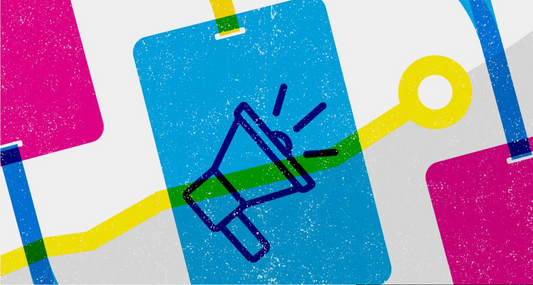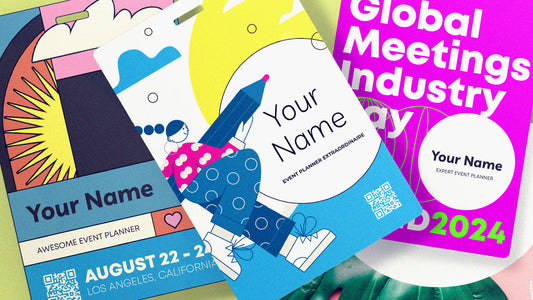In the fast-paced world of event planning, staying ahead of the curve and embracing technology is paramount to delivering exceptional experiences. As event planners, we constantly seek innovative solutions to enhance the planning and execution of our events. This article explores how event technology, from registration platforms to mobile apps, can revolutionize the way you plan, manage, and execute your next event.
📝 Streamline with Event Management Software
Event management software is a crucial tool that acts as the operational core of modern event planning, serving as a comprehensive platform to manage various aspects of an event, ensuring smooth, efficient, and successful execution. Here’s an overview of the key functions and benefits of using such software:
- Comprehensive Scheduling: Enables planners to create detailed agendas, integrating multiple sessions, keynotes, and breakouts, with the ability to accommodate real-time changes in dynamic event environments.
- Attendee Tracking and Registration: Offers advanced tracking capabilities to monitor each participant's journey from registration to event attendance, providing check-ins, session attendance, and overall engagement levels for valuable post-event analysis.
- Logistics Management: Handles all logistical aspects including venue selection, seating arrangements, transportation, and catering, ensuring every physical requirement of the event is planned accurately and executed seamlessly.
- Financial Oversight: Features built-in budgeting tools that allow tracking expenses, managing invoices, and processing payments, maintaining a clear view of the event’s financial health.
- Communication Tools: Includes email marketing, push notifications, and custom mobile apps to maintain continuous communication with attendees, sponsors, and team members.
- Staff and Volunteer Management: Simplifies the organization and management of staff and volunteers by allowing role assignments, shift scheduling, and ensuring all personnel are well-informed and prepared.
- Data Analytics: Provides in-depth analytics, enabling you to assess attendee behavior, preferences, and engagement levels. With this data, you can fine-tune your future events for even greater success.
📱 Mobile Event Apps
Mobile event apps have become a staple in the event planning industry, revolutionizing how attendees interact and engage with events. These apps leverage the ubiquitous nature of smartphones to enhance the attendee experience, making it more interactive, informative, and enjoyable.
- Real-time Event Updates: Mobile event apps provide instant updates on schedules, changes, and announcements. This feature keeps attendees informed about the latest developments, ensuring they never miss important sessions or updates.
- Interactive Maps: Navigating large venues can be daunting. Mobile event apps often include detailed, interactive maps that help attendees find their way around venues effortlessly. These maps can show points of interest such as session locations, food and beverage stations, and emergency exits.
- Attendee Networking Opportunities: Networking is a key component of many events. Mobile apps facilitate this by allowing attendees to connect and communicate with one another within the app. Features might include the ability to exchange contact information, participate in discussions, and set up meetings.
- Personalized Agendas: Attendees can create personalized schedules within the app by selecting sessions or activities they are interested in. This customization makes it easier for attendees to manage their time and ensures they engage in content most relevant to their interests.
- Polls and Feedback: Many event apps include features for live polling and feedback during sessions, which can increase interactivity and give speakers or organizers immediate insights into attendee responses and preferences.
- Multimedia Content: Apps can offer access to session materials, speaker bios, videos, and presentations, allowing attendees to engage with content before, during, and after the event.
- Social Media Integration: By integrating social media platforms, apps can enhance engagement by allowing users to share experiences, post updates, and participate in event-specific social media conversations directly through the app.
📲 QR Codes and Check-In Technology
QR codes on custom name badges have revolutionized the way event planners manage attendee logistics, offering a seamless and efficient check-in process that significantly enhances the overall event experience. This technology not only speeds up entry procedures but also integrates with broader event management systems to provide valuable data and insights.
- Streamlined Check-In Process: The primary advantage of using QR codes on name badges is the rapid check-in capability it offers. Attendees can simply scan their badges using their smartphones or a designated scanning device at the entrance, reducing the need for manual check-ins and minimizing queues. This process is not only faster but also reduces potential errors associated with traditional check-in methods, such as miscommunication or lost paperwork.
- Improved Attendee Management: QR codes enable precise tracking of when and where attendees check in, which helps event organizers monitor flow and distribution throughout the venue. This data is crucial for managing room capacities, scheduling sessions, and even adjusting event layouts in real-time based on where attendees are congregating most.
- Enhanced Security and Safety: The use of QR codes on name badges can also enhance event security. Since each QR code is unique, it helps in verifying the identity of attendees as they move in and out of different event zones. This can be particularly important for events with VIP areas or sessions that require pre-registration or special access.
- Real-Time Data Collection: The integration of QR codes with event management software allows for the collection of real-time data on attendance. This information can be invaluable for assessing the popularity of certain sessions or speakers, understanding peak times, and even for post-event analysis to improve future events. It also provides instant feedback on attendance numbers, which can be crucial for safety and logistics planning.
- Personalized Attendee Experience: QR codes on badges can be used to personalize the attendee experience. For example, scanning a QR code can bring up an attendee’s personalized schedule, suggest networking opportunities with other attendees who have similar interests, or provide location-based notifications about upcoming sessions or events.
📡 Live Streaming and Hybrid Events
In today's digitally connected world, where remote work and global interactions are increasingly commonplace, hybrid events have emerged as a crucial format for hosting gatherings that cater to both in-person and virtual audiences. Leveraging live streaming technology, these events can significantly broaden their reach, engaging participants across different geographies and time zones.
- Expanding Audience Reach: One of the primary benefits of hybrid events is the ability to extend the reach of an event far beyond the physical venue. By broadcasting events online, organizers can tap into a global audience, making it possible for anyone with internet access to participate. This is particularly beneficial for international conferences, seminars, and workshops, where attendees might otherwise be hindered by travel constraints or cost issues.
- Enhancing Engagement with Remote Participants: Hybrid events also focus on engaging remote attendees as actively as those present physically. Through live streaming, virtual attendees can not only watch real-time presentations but also participate in Q&A sessions, polls, and discussions via interactive tools. This interactive participation helps bridge the gap between physical and virtual spaces, making remote attendees feel as involved and valued as those on-site.
- Cost-Effective Solutions for Attendees and Organizers: From a cost perspective, hybrid events offer economical solutions for both attendees and organizers. Attendees save on travel, accommodation, and other related expenses, while organizers can opt for smaller, less expensive venues and reduce costs related to catering and logistics. Additionally, the digital component of hybrid events often requires less physical infrastructure, further reducing overhead costs.
- Sustainability and Accessibility: Hybrid events are inherently more sustainable, as they reduce the carbon footprint associated with travel. This aspect is increasingly appealing to eco-conscious individuals and organizations. Furthermore, these events enhance accessibility, enabling people with mobility issues or other constraints that might prevent them from traveling to participate fully.
- Continuous Access to Content: Another significant advantage of incorporating live streaming into events is the ability to record and archive sessions for later viewing. This means that the content can continue to engage and educate far beyond the live event dates. Attendees can revisit sessions they found particularly valuable, and those who could not attend the live event can access the content at their convenience.
- Challenges and Considerations: However, running successful hybrid events requires careful planning to ensure both live and online components are seamlessly integrated. This involves choosing the right technology platform that can support live streaming, interactive engagements, and possibly even virtual networking spaces. Training for speakers and presenters on how to engage both in-person and virtual audiences effectively is also crucial.
🎮 Attendee Engagement Tools
Attendee engagement tools play a crucial role in modern event planning by adding a dynamic and interactive layer to the attendee experience. These tools, including gamification, live polls, quizzes, and scavenger hunts, not only make events more engaging but also help in maintaining audience attention and participation throughout the event duration.
- Gamification: This involves incorporating game design elements into the event to motivate participation and engagement. By introducing aspects such as point scoring, competitions, and rewards, organizers can enhance attendee involvement. For example, attendees could earn points for each session attended, question asked, or interaction with sponsors, with prizes or recognition given at the event's conclusion. This playful competition fosters a fun atmosphere and encourages attendees to engage more deeply with the event content and each other.
- Live Polls and Quizzes: Live polls and quizzes are excellent tools for real-time interaction. They can be used to gather instant feedback on sessions, understand attendee opinions, or simply break the ice and add a fun element to presentations. These tools can also drive key insights for speakers and organizers, allowing for adjustments in content and discussions based on audience responses. For instance, a speaker might use a live poll to decide which topic to cover next, making the session more tailored to audience interests.
- Scavenger Hunts: Scavenger hunts can transform a traditional event into an interactive adventure. By encouraging attendees to explore different areas of the venue or interact with various exhibitors and sponsors, scavenger hunts help increase exposure for all parts of an event while keeping attendees entertained. This activity can be particularly effective at large trade shows or conferences, where attendees might otherwise feel overwhelmed by the number of booths and presentations.
- Social Media Integration: Integrating social media with engagement tools further amplifies the interactive experience. Attendees can share their quiz results, poll positions, or scavenger hunt progress on platforms like Twitter, Instagram, or LinkedIn, which not only boosts engagement but also increases the event's visibility online. Social media walls displaying live updates and participant posts can also be set up at the venue to foster a sense of community and encourage more digital interaction.
Embracing event technology is not just a trend; it's a competitive advantage. As an event planner, your ability to adapt and integrate these technologies can significantly impact your event's success. Attendees have come to expect streamlined processes, interactive experiences, and easy access to event information. By leveraging event registration platforms, mobile apps, live streaming, and data analytics, you can elevate your events, deliver superior attendee experiences, and position yourself as a tech-savvy event planner ready to tackle the challenges of today's ever-evolving event landscape.




